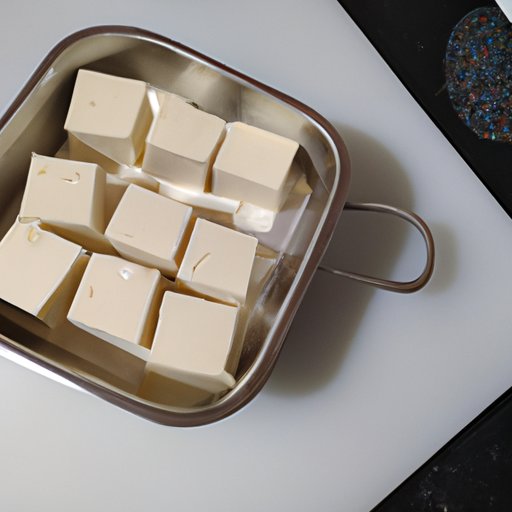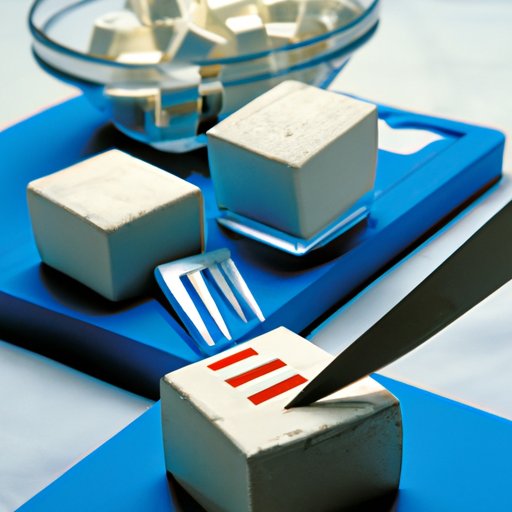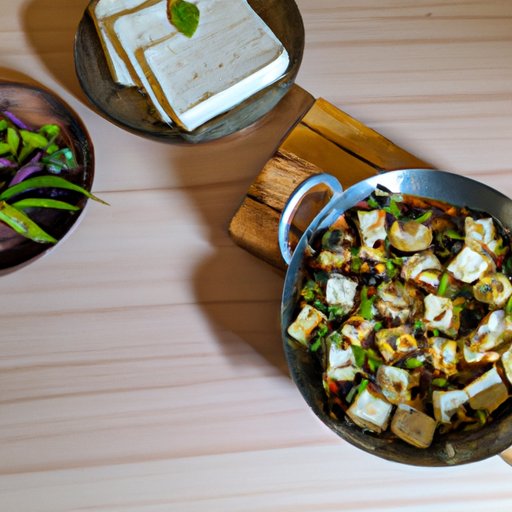Introduction
Paneer is a popular dairy product commonly used in Indian dishes. It is made from curdled milk and is a type of cheese that is similar to cottage cheese. The texture of paneer can range from soft to firm depending on how it is prepared. While it has been a staple ingredient in Indian cuisine for centuries, it has become increasingly popular in other parts of the world as well. But is eating paneer healthy? This article will explore the nutritional benefits and health risks associated with eating paneer and provide tips for incorporating it into a balanced diet.

Exploring the Nutritional Benefits of Paneer
Paneer is an excellent source of protein and calcium, two essential nutrients for health. A 100-gram serving of paneer contains 11.3 grams of protein and 214 milligrams of calcium. Protein is an important nutrient that helps build and repair muscle tissue, while calcium is essential for strong bones and teeth.
Paneer also contains a variety of vitamins and minerals, including vitamin A, vitamin B12, folate, magnesium, phosphorus, and zinc. Vitamin A plays a role in vision, immune function, and reproduction, while vitamin B12 is necessary for red blood cell production and neurological health. Folate helps produce and maintain new cells, while magnesium, phosphorus, and zinc are all important for bone health.

Examining the Health Risks Associated with Eating Paneer
While there are many nutritional benefits associated with eating paneer, there are also some potential health risks. For example, paneer is naturally high in lactose, which can be difficult for those who are lactose intolerant to digest. A study published in the journal Nutrients found that people with lactose intolerance experienced gastrointestinal symptoms after consuming paneer. Additionally, paneer is high in saturated fat and cholesterol, both of which can increase the risk of heart disease if consumed in excess.

How to Incorporate Paneer into a Balanced Diet
In order to reap the nutritional benefits of paneer while minimizing the health risks, it is important to incorporate it into a balanced diet. This means using moderation and choosing low-fat varieties of paneer whenever possible. Additionally, it is a good idea to substitute other dairy products, such as yogurt or cheese, for paneer when possible.
What Types of Dishes Can Be Made with Paneer?
Paneer can be used to make a variety of dishes, both Indian and Western. In India, paneer is often used in curries, tikkas, and koftas. In Western cuisine, it can be used in salads, sandwiches, pizzas, wraps, and casseroles. It is also a popular choice for vegetarian dishes, as it provides a good source of protein without being derived from animal sources.
Comparing Paneer to Other Dairy Products
When compared to other dairy products, paneer is relatively high in fat and calories but low in sugar. Compared to yogurt, paneer contains more fat and fewer carbohydrates and probiotics. Compared to cheese, it is lower in fat and cholesterol but higher in protein. Finally, compared to milk, it is higher in fat and calories but lower in sugar.
Conclusion
In conclusion, paneer is a popular dairy product that can provide many nutritional benefits when incorporated into a balanced diet. It is an excellent source of protein and calcium, as well as a variety of vitamins and minerals. However, it is also high in lactose, saturated fat, and cholesterol, so it should be consumed in moderation. There are many types of dishes that can be made with paneer, both Indian and Western, as well as vegetarian dishes. When compared to other dairy products, paneer is relatively high in fat and calories but low in sugar.
(Note: Is this article not meeting your expectations? Do you have knowledge or insights to share? Unlock new opportunities and expand your reach by joining our authors team. Click Registration to join us and share your expertise with our readers.)
